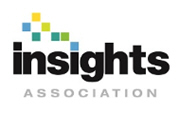| |
US Legislative Digest: Some Good, Some Bad
In the US, Congress has alarmed the Insights Association (IA) and other business leaders with funding proposals likely to damage the effectiveness of Census Bureau Surveys and the ACS; but separately has cheered them with Senate approval for measures to regulate social platforms dealing with under-16s.
 The new KOSA legislation would regulate both the design and operations of many for-profit online social platforms which knowingly interact with minors (16 years of age or younger). KOSA (the Kids Online Safety Act), endorsed after much discussion by the !A, overwhelmingly passed the Senate on July 30th and is part of a larger legislative package. The IA's Senior VP Advocacy Howard Fienberg notes: 'Online communities in which platforms may conduct research, or that purposely blend research with other purposes, may be captured by KOSA. However, the bill would require the Federal Trade Commission (FTC) to issue guidance for covered platforms seeking to conduct market- and product-focused research on minors, giving the insights industry the opportunity to help ensure that such guidance improves how client companies may conduct insights work. More importantly, we aim to turn the FTC's attention to preventing the unethical mixing of market research with marketing, a violation of the IA Code of Standards'. KOSA has yet to complete its passage through the House. The new KOSA legislation would regulate both the design and operations of many for-profit online social platforms which knowingly interact with minors (16 years of age or younger). KOSA (the Kids Online Safety Act), endorsed after much discussion by the !A, overwhelmingly passed the Senate on July 30th and is part of a larger legislative package. The IA's Senior VP Advocacy Howard Fienberg notes: 'Online communities in which platforms may conduct research, or that purposely blend research with other purposes, may be captured by KOSA. However, the bill would require the Federal Trade Commission (FTC) to issue guidance for covered platforms seeking to conduct market- and product-focused research on minors, giving the insights industry the opportunity to help ensure that such guidance improves how client companies may conduct insights work. More importantly, we aim to turn the FTC's attention to preventing the unethical mixing of market research with marketing, a violation of the IA Code of Standards'. KOSA has yet to complete its passage through the House.
Meanwhile fifteen business groups in a letter sent today have warned House leaders of the dangers from a provision in federal funding legislation they say 'would crater response rates to all Census Bureau surveys and result in the decennial census and the American Community Survey (ACS) counting barely a third of the country', while having 'negative ripple effects across the US economy'.
Section 621 of the Fiscal Year 2025 (FY25) Commerce, Justice, Science (CJS) Appropriations bill, which passed the House Appropriations Committee on July 9th, states: 'None of the funds in this Act may be used to enforce involuntary compliance, or to inquire more than twice for voluntary compliance with any survey conducted by the Bureau of the Census'. The letter says this section 'would (1) prohibit enforcement of the mandatory response requirement on the decennial headcount and the American Community Survey (ACS), and (2) severely constrict the ability to conduct basic contact and non-response follow-up operations across all Census Bureau surveys'. It would also 'have an especially devastating impact on the decennial census, which must send way more than just two invitations to just secure self-response'. It continues: 'According to data from the Census Quality Reinforcement Task Force, the 2020 Census had counted only 28% of U.S. households after the first two contacts, as of March 25, 2020, and no state had achieved even 35% coverage. This provision, by cutting off contacts after that point, including non-response follow up operations, would leave as much as two-thirds of the U.S. uncounted in the 2030 Census'. The net result would be to 'wreak havoc on Census Bureau surveys, and by extension on most every other survey and research study conducted across the country'.
Web site: www.insightsassociation.org .

|
